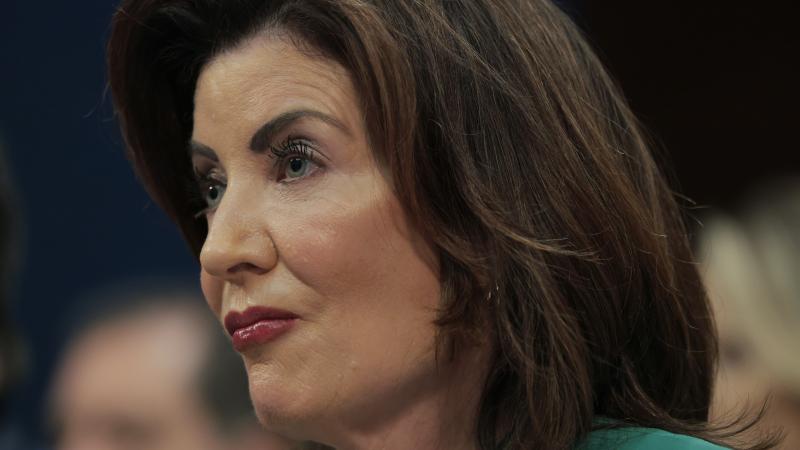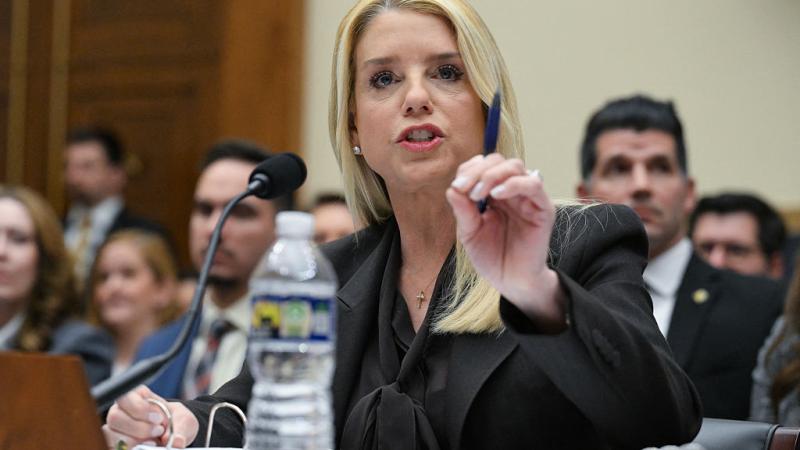Media use Helene disaster to promote ‘climate crisis’ without nuance or context, experts say
As is the case with any natural disaster, the legacy media have used Helene to advance the “climate crisis” narrative, and experts say this ignores the nuance and context needed to fully understand the meteorological influences that caused the event.
The scale of destruction from Hurricane Helene has been extensive. Deaths attributed to the storm across six states are estimated to be 139, according to the Associated Press. Buncombe County in western North Carolina, of which Asheville is the seat, experienced historic water level rises. It’s not an exaggeration to say the storm will devastate the lives of those who were in its path.
As is the case with any natural disaster, the legacy media have used Helene to advance the “climate crisis” narrative, and experts say this ignores the nuance and context needed to fully understand the meteorological influences that caused the event.
Fossil fuel pollution
Major Garrett, chief Washington correspondent at CBS News, reported that “we are living in an era of extreme weather that requires new language.” Garrett reports that all types of disasters are increasing, although that claim goes against research by the Intergovernmental Panel on Climate Change. He also claims disasters causing a billion dollars or more are increasing as a result of climate change. This claim is likely based on the “Billion Dollar Disaster” tally by the National Oceanic and Atmospheric Administration (NOAA). Following research and complaints about the lack of scientific integrity NOAA uses in producing the report, the agency has agreed to review its methods.
Angela Fritz, CNN senior weather and climate editor, reported that it was “fossil fuel pollution” that made Helene so bad. “The atmosphere, warmed by more than a century of fossil fuel pollution, is hotter now than it was in pre-industrial times,” Fritz wrote.
While carbon dioxide emissions are widely believed to be contributing to an observed warming trend, fossil fuels are used along the supply chain in every product people consume, from the extraction of raw materials to the shipping of materials and final products. The way Fritz describes it, producing the food we eat, the clothes we wear, and the houses we live in is spreading “fossil fuel pollution.”
Fritz continues, “Helene also rapidly intensified twice before it reached Florida, because the water in the Gulf of Mexico is off-the-charts warm — much like the rest of the Atlantic. More than 90% of warming around the globe over the past 50 years has taken place in the oceans, and it’s making storms more likely to undergo these rapid intensification cycles.”
Dr. Matt Wielicki, former assistant professor in the Department of Geological Sciences at the University of Alabama, writes on his “Irrational Fear” Substack that there’s a historical context to consider. In July 1916, two back-to-back tropical storms dropped an unprecedented amount of rainfall on the Asheville region resulting in catastrophic flooding. Flood levels reached 23 feet, which was 1.67 feet lower than this week’s flooding, according to preliminary figures.
“The 1916 event occurred even though atmospheric CO2 levels were approximately 120 ppm lower than they are today,” Wielicki wrote, meaning that devastating extreme weather events can happen without global warming.
Wielicki argues that communities rebuilt in the areas that are destined to flood again, and there’s been little effort to revise urban planning practices to avoid such destruction. He writes that FEMA has responded to the way it does in all disasters — respond to the disaster, request billions for relief, and wait for the next disaster.
“Blaming the fossil fuel industry for all weather-related disasters overlooks the complexity of natural climate variability and the role of poor urban planning in flood-prone regions,” Wielicki wrote.
Important context
Meteorologist Ryan Maue explains on X that there’s not much analysis in articles that glibly claim that water was warm in the Gulf of Mexico and warmer water causes hurricanes to get worse and intensify faster. He points out that NOAA projects the intensity of tropical cyclones to increase on average 1% to 10% by 2100.
“In summary, it is premature to conclude with high confidence that human-caused increases in greenhouse gases have caused a change in past Atlantic basin hurricane activity that is outside the range of natural variability, although greenhouse gases are strongly linked to global warming,” the agency explains on its website.
Maue said in an interview that many climate reporters have little background in climate science and they’re being misled or allowing themselves to be misled.
“I would argue that they are ignorant of the nuance, so they do not know what they're printing or posting or print on TV is actually propaganda. They are easily fooled or led astray or manipulated by scientists, activists and other media outlets into promoting certain narratives that may not have the best science underneath them,” he said.
The shift in objective climate reporting is well illustrated, he said, by the decision by the Guardian to use specific language in describing climate change in a way that supports anti-fossil fuel rhetoric and the energy transition.
“That's how The Guardian shifted from being a serious journalism outlet to being a full-on propagandist,” Maue said.
They changed “climate change” to “climate crisis” or “climate emergency.” Instead of calling people with less alarmist perspectives on climate change as “climate skeptics,” the publication declared they are all “climate deniers.” While the publication said the term applies to people who “deny climate change,” the term has been applied to anyone who disputes the “climate crisis” narrative, such as Dr. Roy Spencer, who explicitly affirms that climate change is happening and mankind is contributing to it.
In the announcement on the guidelines, Editor-in-Chief Katharine Viner said the change was made to “ensure that we are being scientifically precise, while also communicating clearly with readers on this very important issue.” However the publication did not cite any objective sources demonstrating the changes were in line with any studies or research on climate.
All sides
Maue said that it takes an enormous amount of study and training to fully understand climate science. Without that background, reporters need to be willing to research it themselves.
“That means you're going to have to expose yourself to arguments on all sides, and you just can't dismiss somebody's argument because they may be on some blacklist,” Maue said.
In 2016, Dr. Roger Pielke Jr., retired professor of environmental studies at the University of Colorado at Boulder, wrote in The Wall Street Journal about the reactions he’s gotten from the media for his criticisms of poor climate reporting. In August 2016, he criticized a report on Mashable about a “supposed hurricane apocalypse" that included a misquote of Pielke, which was later removed, and portrayed Pielke in a “cartoon role of climate skeptic.”
Andrew Freedman, who was at the time the Mashable’s lead science editor, appeared to consider Pielike’s points, if not pleasantly. He told Pielke on X, which was called Twitter back then, that the criticism “is why you're on many reporters' ‘do not call’ lists despite your expertise. Duly noted. Thanks.”
“I didn’t know reporters had such lists. But I get it. No one likes being told that he misreported scientific research, especially on climate change,” Pielike wrote in the Journal article.
In the midst of all the bad reporting on Helene, Maue points to a report by Freedman, who is now senior climate reporter for Axios, as an example of good climate journalism. Freedman, Maue said, appears to be familiar with the science behind why hurricanes, prior to 2017, rarely intensified all the way until they reached landfall due to cooler waters near the shoreline, as explained in a 2010 paper on the topic. As waters in the Gulf have warmed, the conditions that prevented an acceleration of intensity have changed.
Freedman’s report has no mention of “fossil fuel pollution” or “climate breakdown.” Freedman, Maue said, provides context on the influences of the storm in factual bullet points.
“There isn’t any fluff in here. It’s just bullet points — essentially multiple tweets assembled into an article,” Maue said.
The Facts Inside Our Reporter's Notebook
Links
- historic water level rises
- reported
- which goes against research
- Billion Dollar Disaster
- research
- complaints
- agreed to review its methods
- reported
- extraction of raw materials
- shipping
- Irrational Fear
- according to preliminary figures
- explains on X
- to increase on average 1% to 10% by 2100.
- use specific language
- explicitly affirms
- wrote in The Wall Street Journal
- told Pielke on X
- report by Freedman
- explained in a 2010 paper















